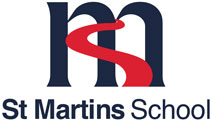Student Achievement
Assessment
At St Martins School, learners are assessed in ways which reflect their growth and progress as whole people. We use methods of assessment that identify each learner’s progress against their goals, set learning outcomes, the New Zealand Curriculum Framework and Learning Progressions. The primary purpose of assessment is to enhance learning. Quality assessment also enables us to:
- identify the learning needs of individuals, groups and whole class.
- provide an individual learning profile and information on the progress of each student; identifying areas of next step learning.
- improve the quality of teaching programmes by analysing the data gathered, identifying areas of need and planning strategies, and allocation of resources to meet these.
- improve the quality of students’ learning programmes by evaluating the methods used in teaching and their effectiveness within the programme.
- facilitate reporting to students, parents and other professionals.
- assist in the preparation of class and school reviews and reporting on school effectiveness.
It is expected that at St Martins School assessment will provide information that will contribute to improving educational outcomes for all students through better teaching and learning programmes. Assessment information will also be used to help learners identify their own learning goals, for reporting achievement to parents, and for assuring the Board of Trustees that the school is meeting the requirements of National Administration Guideline 1 and the goals of the school’s Strategic Plan.
The school provides specific direction for teachers in assessment practise, and in particular, how assessment is expected to be used to improve teaching and learning.
Purpose:
Assessment will reflect the requirements of the National Education Guidelines.
To ensure programmes are prepared with the needs of the children as the priority.
To give the BOT information on class programmes and general pupil progress.
To provide Teachers, Pupils and parents with evidence of achievement against specific learning objectives.
Guidelines:
- The Deputy Principal, in conjunction with the Staff, will prepare a set of procedures for carrying out assessment in the school.
- Reporting to Parents will be as follows:
- Goal Setting Student Led Conference (Start of year)
- Progress Student Led Conference and Written Report (midyear)
- Achievement Written Report (End of year)
- Teachers will use assessment practices which are valid, manageable and reliable.
- At the end of each term the teacher will be required to present end of term achievement data. Evidence of achievement will be filed.
- Each teacher will be required to contribute to the process involved in reporting to the BOT on curriculum.
During the year there are a number of opportunities for teachers to report to parents about their children’s progress.
Early in the first term there is an opportunity for parents and teachers to meet and share information and set goals. Parents will be invited to the school to discuss their child’s progress in term two in the form of a “Student Led Conference”. Parents will also receive a final end of year written report that will document your child’s Achievement for the year.
Parents are reminded that they are free to arrange an interview with their child’s teacher at any time at all during the year. If you wish to discuss your child’s progress please telephone to arrange an appointment with the class teacher concerned so that sufficient time is available to deal with your concerns.
If you have concerns it is better to discuss them sooner rather than later.
Parents, families and whānau have an important part to play in supporting children’s learning at school. To do this you need support from schools, including clear, regular information about your child’s progress and achievement in reading, writing, mathematics and other key learning areas and what you can do to help.
Progress and Achievement written reports include:
- your child’s goals and how they are progressing towards the goals
- your child’s progress and achievement in relation to reading, writing, mathematics other key learning areas reported against the New Zealand Curriculum and Learning Progress
- the results of assessment
- ways you can support your child’s learning
- what the teacher and school will do to support your child’s learning.
You can talk to the teacher, make suggestions and ask questions about the information in your child’s written reports at parent-teacher meetings and during informal discussions at any time during the year.
How reporting will help you:
Progress and achievement reports on your child’s reading, writing, mathematics and other key learning areas will help you to:
- be more aware of how your child is doing at school and what’s being done to help them learn
- identify any learning difficulties early and how these will be addressed
- follow your child’s learning progress over time
- understand what you can do to support your child’s learning
- be informed and know what questions to ask when discussing your child’s education with teachers and the school.


